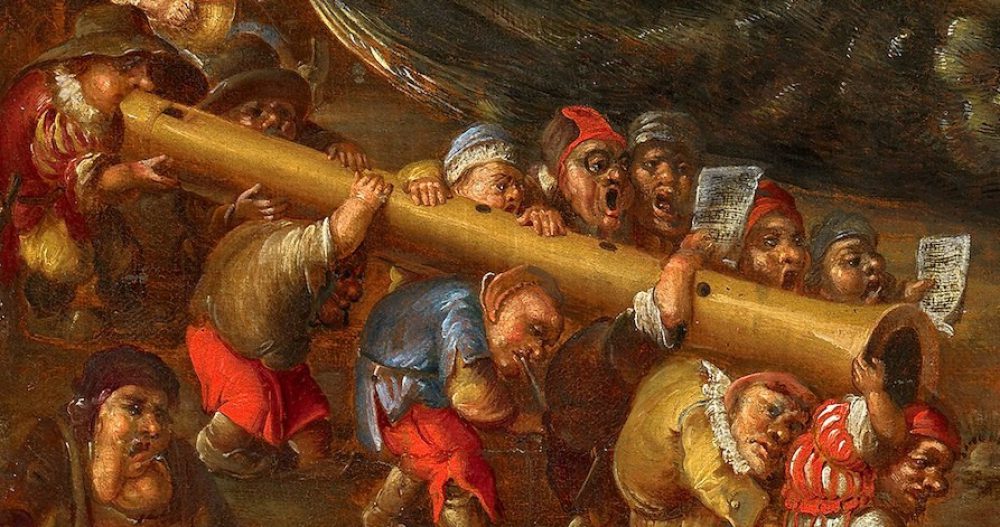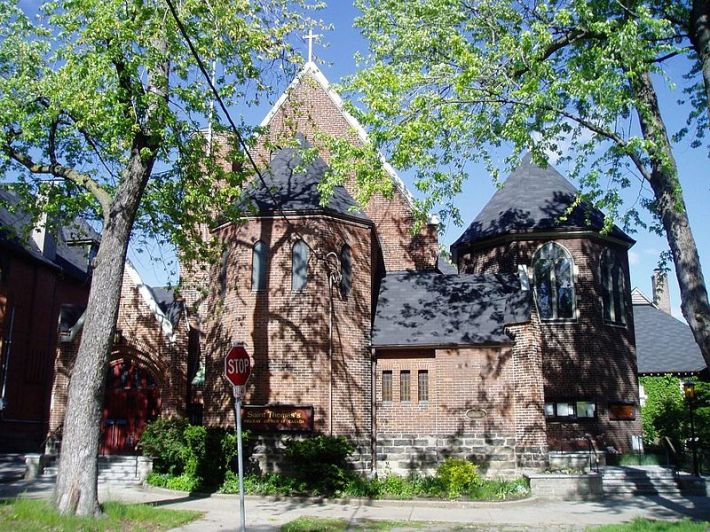When I began collecting material for this post last week, I had planned to focus on the Tibiades of François Chauvon, a little-known collection of elegant and slightly eccentric suites from early eighteenth-century Paris. Eight of these can be heard on a CD released last fall on Montréal’s early-music.com, a recording project of which I was delighted to be a part.
But to paraphrase John Lennon, life is what happens while you’re making other plans, and earlier this week my writing plans were unexpectedly altered by the sad news that my dear friend and colleague Washington McClain, a baroque oboist whom I knew for close to twenty years and with whom I played countless concerts of chamber and orchestral music, had died. He was one of North America’s busiest and most admired baroque oboists and taught at Indiana University. When he passed away suddenly last Sunday at the age of fifty-two, we all lost a radiant musical light.
So for now, I’ll write about Washington and our last musical collaboration, which by a bittersweet synchronicity was that recording of Chauvon.
Washington was a superlative musician. Elegantly expressive and adroit in technique, he had ‘ears’ so good I’m sure he could hear the grass grow. He was a paragon of integrity and professionalism, and he was also a mensch. Wash was serious and of strong opinion when he felt he needed to be, but he also had a smile that lit up the room and a deep sense of collegiality. I also loved him for his genuine, ongoing exploration of everything and anything that really brought the music off the page, especially with repertoire such as the Chauvon. He never got tired of wondering.
For a few sweltering days during a heat wave in July 2011, Wash and I gathered with bassoonist Michael McCraw, harpsichordist Charlotte Nediger and violinist Julia Wedman to rehearse and record eight of the twelve Tibiades. We were lucky to have found nearly a full week when everyone was available for the project. It’d been quite a while since all five of us had seen each other and we were happy to be reunited, so there was a little bit of magic afoot. The Ontario Arts Council had given the project some funding, and we’d secured the services of an excellent producer (Ivars Taurins) and ears-of-gold sound engineer (Ed Marshall). Our venue was Toronto’s St Thomas’s Anglican Church, an anglo-catholic oasis of calm despite its location half a block south of one of the busiest streets in the city.
That recording was hard work, mostly because of the oppressive heat. St. Thomas’s is a serene place with dark wooden rafters, terracotta tile floor and a paucity of large windows, but it got very hot and humid as the sessions progressed. ( You can’t leave the ceiling fans on, or leave the windows open during recording sessions like this, unless you think the sound of an idling truck or the barking of a Jack Russell terrier adds some extra élan to music from eighteenth-century Paris.) We consumed water by the jug, we toweled off repeatedly, we made ice packs to cool our feet (surprisingly effective!). There were a few more curses than usual about errant tuning, flabby strings and recalcitrant reeds, and some discussion about how much more clothing we could take off without offending anyone. But despite all that and the occasional self-recriminations we took turns having (“I remembered the repeat for the first four takes, why did I forget it now?!?”), we had a lot of fun exploring that music and were all very, very happy to have done so together.
We recorded for three days, creating a French Baroque sonic kaleidoscope by varying the number of players and instrumental colours for many of the suites. A prélude played by us all was followed by an allemande for the flute, violin and harpsichord, then a courante for the oboe with continuo, a gavotte for oboe and bassoon, an arpègement for solo harpsichord, and so on. Three of the suites were given the more standard treatment, one each for oboe, violin and recorder (with continuo). Here’s Wash with Michael and Charlotte, playing the Allemande from the Third Suite:
Allemande, la Dragonne – Suite 3
Still other movements got the tutti treatment with some spelling-off for variety’s sake, as in the Chaconne en rondeau from the Eleventh Suite:
Chauvon: Les nouveaux bijoux came out last fall, and kind and favourable reviews have recently begun to appear. I’ve listened to the CD again several times this week just to hear Wash. Knowing I’ll never sit beside him again is heartbreaking, but his beautiful playing is there to enjoy as often as I wish. It was a joy and an inspiration to know and make music with him, and I’m beyond grateful that we made that CD.
Wash was also a good friend, affectionate, honest, thoughtful, funny, wise, and a great storyteller. People had to push pretty hard before he ceased giving them the benefit of the doubt. I can’t believe I will never have another of those long telephone conversations with him, or hear his laugh again. It seems inconceivable that our visits to the Ethiopian restaurant around the corner are over, and that he will never walk through our front door again. What a terrible loss. I miss him greatly and will remember him often, even if I should live to be a very old lady.
http://www.early-music.com/music/chauvon-les-nouveaux-bijoux/




What a wonderful remembrance. Thank you so much, Alison. ❤
Thank you so very much for sharing this information. You really touched our hearts. We as a family are hurting any thing that we are able to read about him brings us much comfort.
Thanks, Alison. I remember Wash and his art very fondly; happily we still have some of the latter.
Merci Alison! Il me manque beaucoup aussi! Nico xx
Wash and I gave a joint junior recital in college. Many of the professors commented that it was one of the best done that year….and it was not because of my performance! He was a superlative musician. His presence in the world will surely be missed, but he leaves us with the beautiful music he created with others as solace – and a continuing remembrance of his gentle spirit!
Beautiful xx
Thanks from me as well, Alison. I will admit to being one of the privileged who shared in Wash’s discovery of the oboe as we pursued our bachelor’s degree at NLU in Monroe, LA so many years ago. And yet, both of us moved away from where we began our music studies. He never changed from the Wash we knew then to to same you describe. Another friend had shared the details of this recording with me earlier today and now I’m very sure that it will be the recording I order as a lasting memory of Wash — a friend who belonged to all of us. Thank you again for your gracious tribute.
Thank you Allison for such lovely thoughts of remembering my beautiful spirited cousin Wash. He was as beautiful inside as the music he made on his on his oboe. I will miss his phone calls every morning and most afternoons. I don’t know most of you all by face but the names always spark my memory.
We would share stories of our adventures and Wash had some very funny ones to tell. It didn’t matter if he was walking on ice, traveling on the plane, train or automobile there was always an interesting story. All the love he poured into us from the beautiful vessel GOD gave him is now broken, and now the love that we poured into him must be transfered to others that come into our lives. Of course we will never loose the warm fuzzy feeling we have just thinking of him. Lets’s all make beautiful music togther thinking of Washington McClain.
That’s a beautiful testament to a wonderful man! We are all richer from know him.
Thanks to you all for your thoughts and responses! Wash was known and loved by so many people in so many places. It’s so good to hear your reflections. My heart goes out to you all, particularly to you who are members of Wash’s family.
Blessings to you for such a lovely writing about Wash. Although I was never privileged to hear him play; knowing his spirit and listening to him talk about his adventures in the music world, were enough. I hope to purchase some of his music with you and the others. Again thanks for sharing and continued blessings to you and yours.